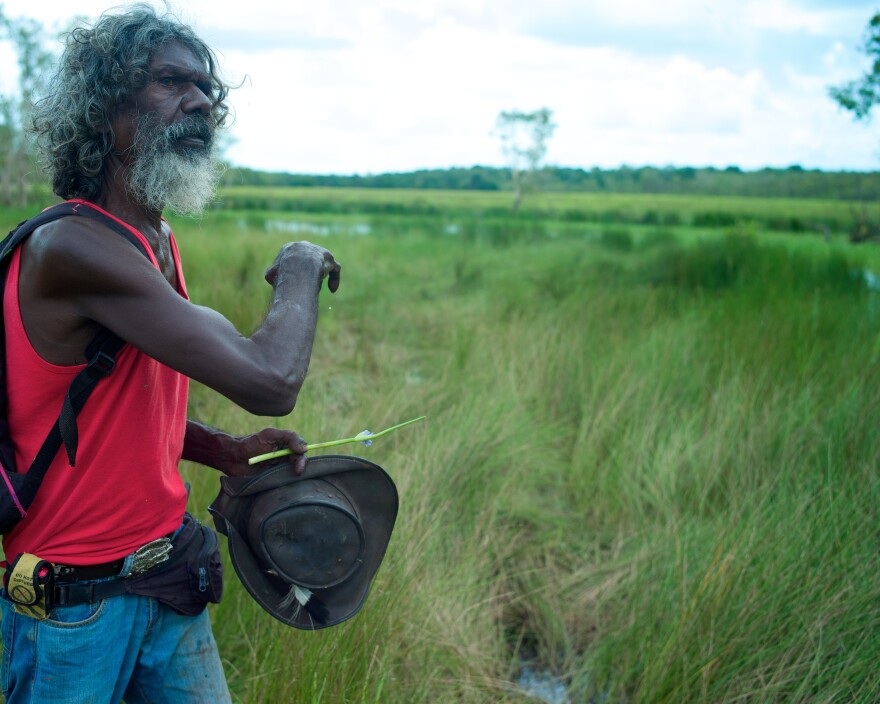This story is part of True/False Conversations, a series of in-depth interviews with the filmmakers of this year's True/False Film Fest. Find the rest of them here or download the podcast on iTunes.
As far away as Australia feels for Americans, that’s how far Ramingining feels for the average Australian. Tucked away in the far northern part of the continent, the Australian government established Ramingining in the 1970s. It then proceeded to move several groups of indigenous aboriginals out of their native bush and into the new town.
"Another Country" provides a sobering look at the life of the residents of Ramingining. Through the narration of aboriginal actor David Gullpilil, the film condemns what government intervention policies have done to the aboriginal people. He describes a community that has been deprived of their natural domain and forced to assimilate to a world of money and trash in which they don't belong in.
I spoke with Molly Reynolds, the co-director of "Another Country."
Levi: Can you tell me about how you got the idea for "Another Country?"
Reynolds: With these things, I find that it usually comes from many inputs and impulses. My partner and I, we have a long standing relationship with the indigenous community, the Yolngu up in northeast Arnhem Land at the very top of Australia and we've been making films with them for a decade now and there was the idea to go and make a feature film called Charlie's Country about an elder who lost his way and how he finds redemption. I'm a documentary maker and I thought there'd be a perfect opportunity to go up to Ramingining because I'm Australian, yet it's the most foreign place on Earth I've ever been to, and I knew that I could come out with a documentary.
Levi: One of the things I noticed in the film is that there are very few scenes where you utilize English language subtitles. What was your thought process, your motivation behind that decision?
Reynolds: I wanted to sort of flip things a bit and have the audience understand what it is to be an outsider. We're all English speakers. It's the dominant language throughout the world. It makes our lives very, very easy for it. Most people end up learning English as a result so even though their English is not their first language, it still gives us advantage when we communicate with them. So in this situation, what we wanted was the audience to reflect upon the fact that they're outsiders that they don't quite understand what is happening.
Levi: Obviously, you're now bringing this film to a non-Australian English language audience. Why bring this film to the United States and to True/False in particular?
Reynolds: I'm actually really, really very excited about coming to the festival, not only because of the great lineup of documentaries that they have but also to see how American audiences respond to the film because I know that over there you also have some very complex issues with your First Peoples and how to this day they remain largely marginalized. In this documentary, David, he speaks directly to the dominant culture in Australia, and I suppose in many ways, could speak directly to the dominant culture in the US, and sort of says "this is what it's like from our perspective."

